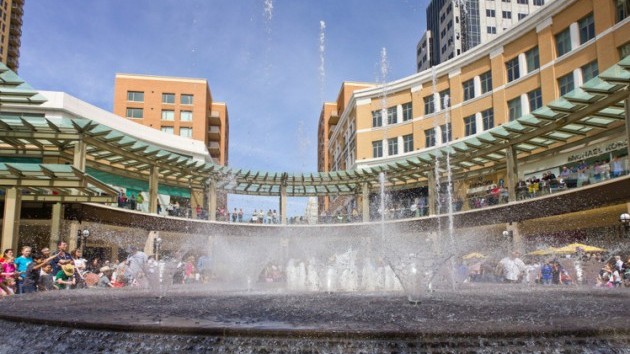
Most religions exhort their members to take care of their eternal souls; the unusual thing about Mormonism is that it also urges its members to profit in more earthly ways, too. A lengthy article in Bloomberg Businessweek unpicks the business dealings of the Church of Latter-Day Saints, showing how the faith’s emphasis on profitable enterprise has spawned a sprawling, multi billion-dollar business empire.
‘We look to not only the spiritual but also the temporal, and we believe that a person who is impoverished temporally cannot blossom spiritually,’ Keith B McMullin, CEO of the Mormon church’s holding company, tells Businessweek’s Caroline Winter.
And when members flourish in the temporal realm, this helps the church to prosper, too: congregations are expected to pay 10% of their income in tithes into the central coffers – adding up to an estimated $8bn (£5.1bn) a year. The church as a whole is worth an estimated $40bn. But a recent report estimated that the church gives just 0.7% of its income to charitable causes; what becomes of the rest is not entirely clear, even to members.
Enterprise is in Mormonism’s DNA, Winter says: the church’s original prophet, Joseph Smith, had 112 revelations, 88 of which relate directly to financial matters. This makes him perhaps the world’s first genuine business guru. Next month, former Mormon bishop – and multi-millionaire businessman – Mitt Romney will receive the Republican presidential nomination, which will place the church’s dealings under scrutiny as never before.
Businessweek traces the church’s sprawling business empire, which takes in for-profit ventures as varied as agricultural holdings in Britain, Brazil, Argentina, Mexico, and Australia, a sewage system, a university, a publishing company, a TV station and 11 radio stations, vast property holdings, and two cemeteries. The church is currently spearheading a $5bn regeneration of Salt Lake City, Utah.
The Mormons also run a number of non-profit organisations, including, bizarrely, a Polynesian cultural centre in Hawaii and a university.
And as a religious organisation, the church can claim tax breaks – for example, it is often exempt from paying tax on properties it leases out, even when the properties are rented to commercial businesses. Winter quotes a Reuters report that Romney and other senior staff at Bain Capital donated millions of dollars worth of stock, including holdings in Burger King and Pizza Hut, which the church would then have been able to sell on without paying capital gains tax.
The business holdings are run by senior Mormons, and like individual members the businesses pay 10% of their income in tithes. McMullin tells Winter that occasionally the businesses can turn to the church as a source of cash. He says this rarely happens, but gives ‘recession’ as an example of a time when the church’s for-profit enterprises might receive such support.
The Mormon church is far from alone in opaque business holdings: the Catholic church is far from open about its fortunes. Those who run the church’s businesses insist that they have a mission beyond generating profit, and that they turn to Mormon principles for their business decision-making. But as Winter points out, the lack of transparency surrounding the relationship between Mormonism’s business arms and the central church funds is problematic, even for some Mormons.
‘McMullin insists that not one penny of tithing goes to the church’s for-profit endeavors, but it’s impossible for church members to know for sure,’ Winter writes.
In March, the church completed the City Creek Center, a $2bn mega-mall in Salt Lake City, a structure with over 100 shops, a retractable roof and elaborate fountains. Facing the Mormon church’s main temple, and linked by walkways to the church’s headquarters, it is a near-perfect illustration of the religion’s comfortable relationship between faith and commerce.
Click here to read How the Mormons make money, in Bloomberg Businessweek.
This story was originally published by The Bureau of Investigative Journalism.


